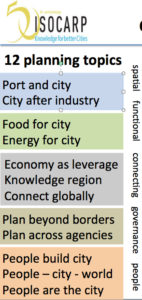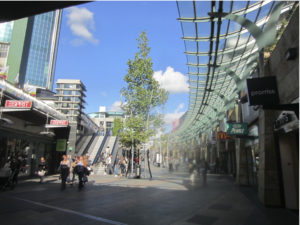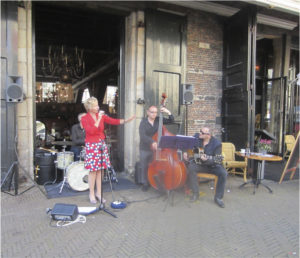OC61 Cities Save the World
‘Cities Save the World’ was the title of the 50th anniversary congress of the International Society of City and Regional Planners (ISOCARP) which took place in 2015 at a plenary in Rotterdam preceded by parallel workshops in 12 cities in the Netherlands, Belgium and Germany: Amsterdam, Antwerp, Brussels, Delft and the Hague, Deventer, Dortmund, Eindhoven, Groningen, Maastricht with Liege and Aachen, Rotterdam, Schiphol airport and Wageningen. They chose themes of prime importance for their everyday planning activities which were of interest to cities from all parts of the world and their planning professionals who came to share their experiences.
The city themes were complementary and addressed the three pillars of sustainability: economy, environment and civil society
“How to Build the City in a Cooperative Way”? Amsterdam
“How to Rework the Productive City?” Antwerp
“How to Achieve a Successful Renovation of a Capital While Matching Local Expectations with International Challenges?” Brussels
“How to create a sustainable knowledge region?” Delft and The Hague
“How to Implement a Legal Framework for Local Integrated Planning” Deventer
“How to leverage economic growth from spatial projects?” Dortmund
“How to react when traditional industries move away?” Eindhoven
“How to sustain energy resources?” Groningen
“How to build a Trans-Boundary Urban System” Maastricht with Liege and Aachen
“How to Develop Unprecedented Port-City Synergy” Rotterdam
“How to connect in a globalising world?” Schiphol with local authorities
“How to feed the world’s metropolises?” Wageningen

Cities Save the World sustainably: with equitable urban economy, cared for environment and to satisfy needs and wants of civil society
‘Let’s Reinvent Planning’ was ISOCARP’s overarching aim after 50 years of existence. Planning had changed dramatically since 1965 when the planning profession had status and some would argue power, mainly in the public sector, but also among professional planners who contributed to a period of rapid urbanisation. At that time the nation state and its planning legislation were at the top of a hierarchical pyramid from where actions were expected to be taken up at regional, city and neighbourhood levels, all within the legislative planning framework.
Devolution of responsibilities, often without the necessary means though has catapulted cities into intervening in the urbanisation process, not just as a regulator but often as a partner with the private and also the social sectors, or as initiator of urban change.
Cities Save the World may have been a provocative motto, but in our times cities the world over constitute the level at which concrete interventions are taking place, from the top down by the corporate sector in cooperation with the city planners and other key stakeholders from business and the professions, and from the bottom up by small groups of local activists who engage in direct action to improve their neighbourhoods.
The outcome of this interactive congress with hands-on and concrete exchange of knowledge and expertise between planners, with mayors and keynote speakers can be found on the ISOCARP website www.isocarp.org under congresses, and is being published as a CD available from the ISOCARP secretariat.


